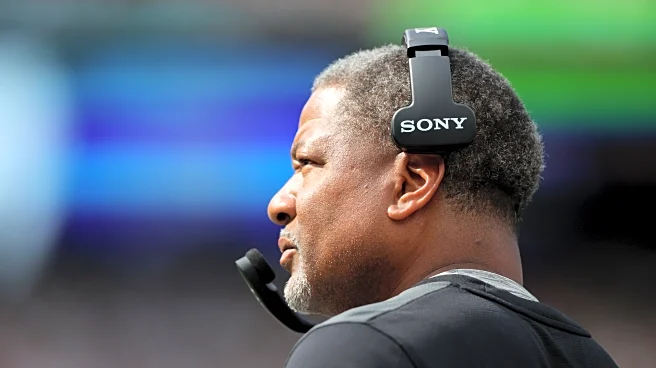The Cowboys may not be sitting pretty in the standings, as there are few 1-2-1 records out there that are leading their division, but the offense has absolutely not been a problem this year. Brian Schottenheimer
has cooked up two 40 burgers already, with the most recent one coming without CeeDee Lamb and two other starters, both on the offensive line.
This week, though, brings a different challenge. The Cowboys head on the road to face the Jets in New Jersey, where Schottenheimer will match wits with new head coach Aaron Glenn and his defensive coordinator, Steve Wilks. Glenn is in his first year with the Jets after playing an integral role in rebuilding the Lions, serving as Dan Campbell’s defensive coordinator for the last four seasons.
That said, Glenn made it very clear when he was hired by Gang Green that he planned to focus on being a head coach, handing Wilks total responsibility for the defense. While it’s unrealistic to think Glenn never offers input on defensive game plans, this is Wilks’ defense. And, through four games, the results have reflected that, too.
Wilks is a known commodity at this point in the NFL. He was a key part of the Panthers’ defensive dominance under Ron Rivera, and his solo season as the head coach of the ill-fated 2018 Cardinals saw the defense as the lone bright spot. He was also the preferred replacement for Matt Rhule among Panthers players after serving as the interim head coach, but Carolina opted for Frank Reich, who didn’t even make it a full year.
Wilks brings a similar sort of fire to the locker room as Glenn, with both known to be elite motivators and leaders of men. Both also have a strong track record of producing great defenses. Wilks was controversially fired as the 49ers defensive coordinator the day after losing the Super Bowl, and San Francisco’s defense fell off a cliff the next year.
The scheme that Wilks prefers is well-established by now. In fact, that’s what led Kyle Shanahan to fire him in San Francisco: Shanahan reportedly wanted Wilks to run the same defense that his predecessors had run, rather than operate his own scheme. Wilks’ unwillingness to bend the knee created a wedge between him and his now-former head coach, who has gone 9-11 since firing Wilks.
Wilks operates out of a traditional four man front, but it could hardly be considered a 4-3 defense. For his career, Wilks has often led the league in nickel formation usage, often keeping a third cornerback out there regardless of the offensive personnel grouping. Wilks, a former defensive back himself, prefers to flood the field with defensive backs and take away the passing attack.
Another way in which Wilks aims to make life harder on the quarterback is by sending pressure frequently. He’s often one of the more blitz-happy play-callers in the NFL, and the Jets currently rank eighth in blitz rate. So far this year, though, it hasn’t translated to results: the Jets are 26th in pressure rate. They’re actually worse when they do blitz, too, ranking 28th in pressure rate when sending an extra pass rusher.
A lot of that has to do with some leaky coverage on the back end. Wilks’ defense is 30th in EPA/dropback and they’re giving up the eighth-most yards per pass attempt. Sauce Gardner has been reliable for the Jets, but the players around him have suffered as a result of teams throwing away from the All Pro cornerback.
Brandon Stephens, a free agent addition who earned a starting job, is giving up a whopping 126.5 passer rating when targeted. Michael Carter II has been nearly as bad. Safeties Andre Cisco and Tony Adams have been similarly vulnerable, and Jamien Sherwood is giving up the sixth-highest passer rating for a linebacker.
Wilks likes to play a wide variety of coverages, alternating between types of zone and man at a breakneck pace. When his secondary is able to execute, this defensive scheme can make life miserable for a quarterback between all the different coverages and blitz looks. Right now, though, it looks as if the Jets are still trying to grasp the new scheme.
That makes this week even more challenging for them. Dak Prescott is firing on all cylinders in this Cowboys offense, and he’s historically been one of the best against the blitz; so far this year, he’s fourth in EPA/play and third in CPOE against the blitz. Javonte Williams has also blossomed into a workhorse running back, giving the Cowboys balance they haven’t been afforded in several years.
Of course, the absence of Lamb still looms large. Putting up numbers without him at home is one thing, but doing it on the road is a more daunting task. Still, the Cowboys should have opportunities to score points against a Jets defense that is very much still figuring things out.









